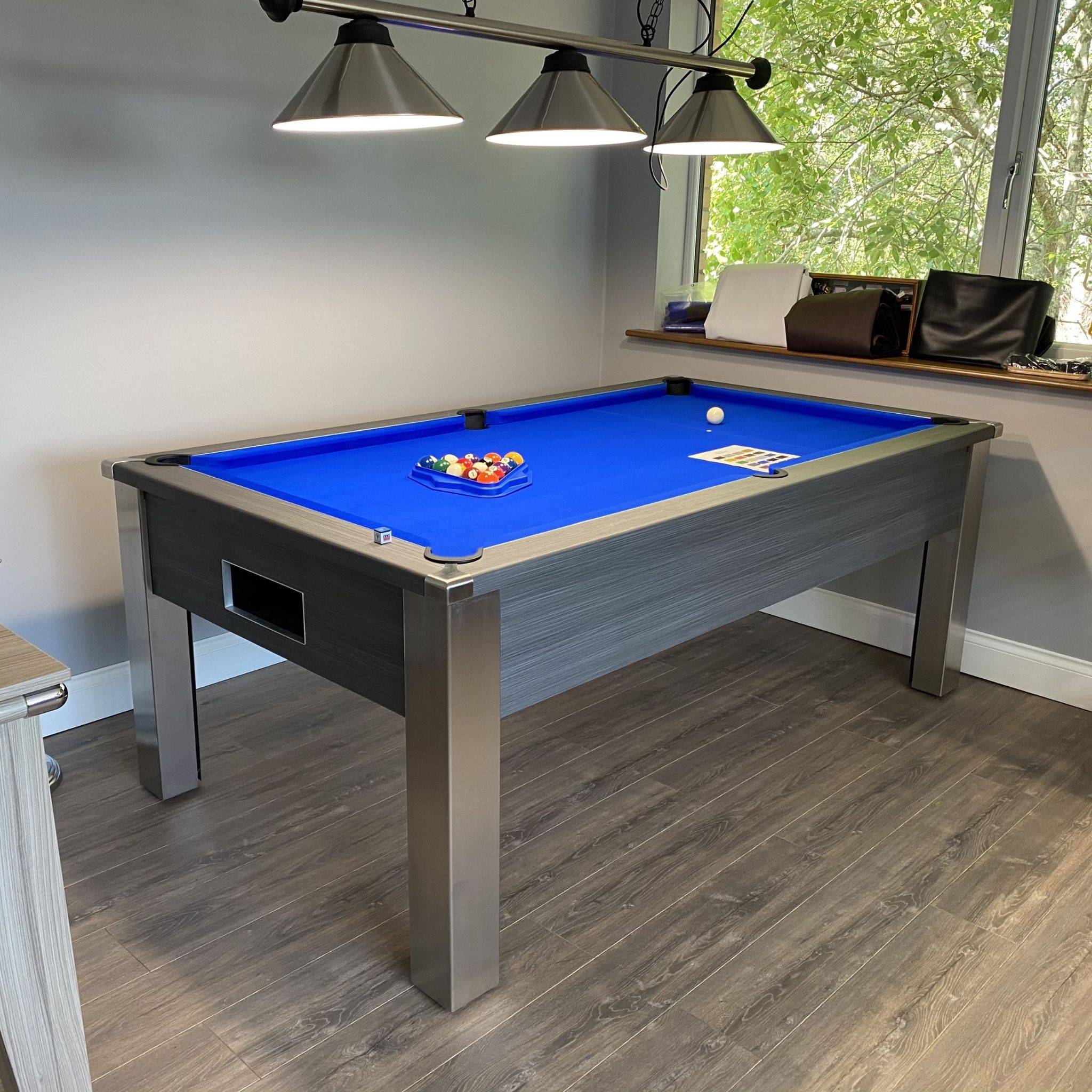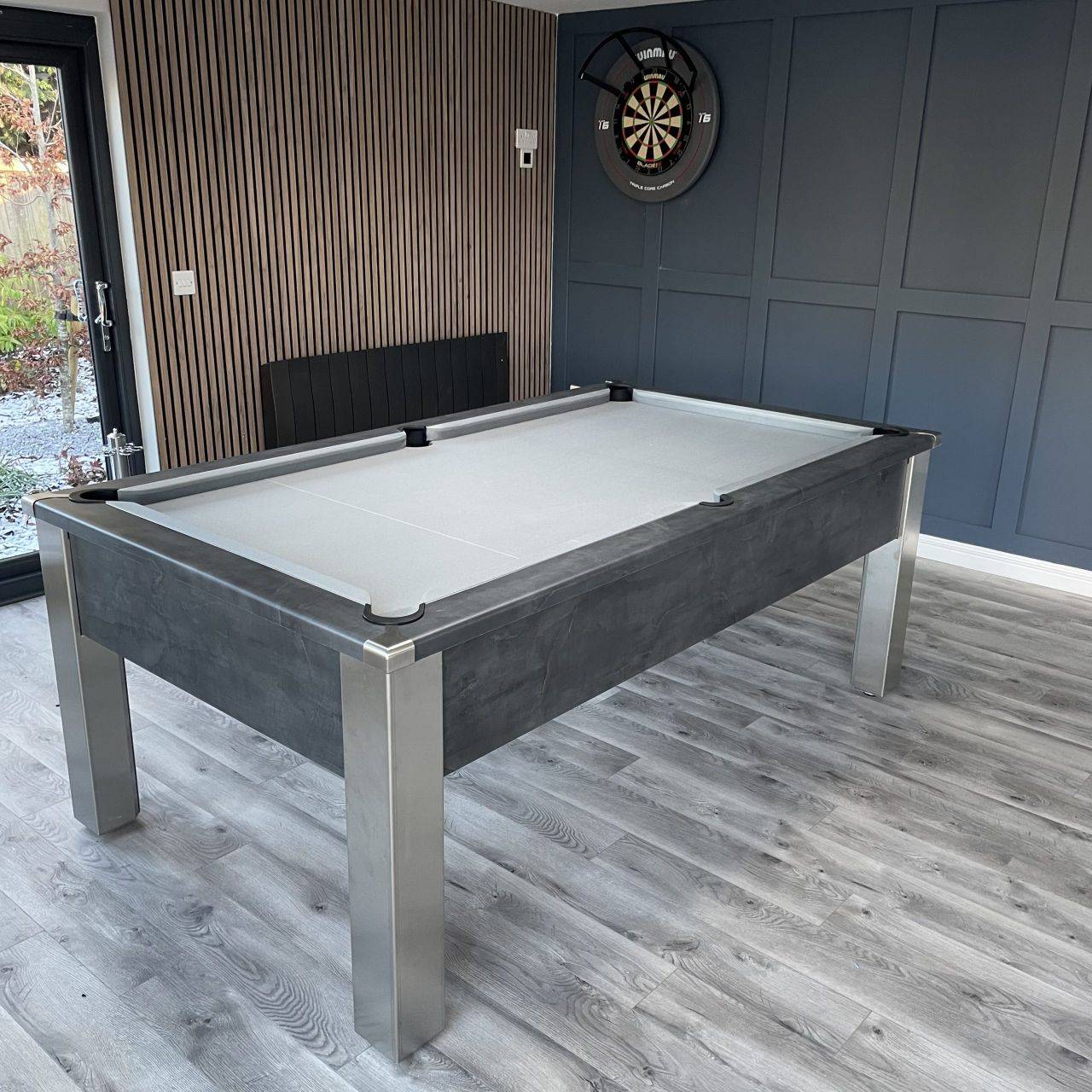Is a Slate Pool Table Better? An In-depth Examination
Delve into the world of billiards and explore the advantages of slate pool tables. This article investigates the pros, cons, and vital factors to consider when choosing a pool table.

Decoding the Significance of a Slate Pool Table
Billiards has long been a cherished game, a perfect blend of skill and strategy. When it comes to pool tables, the choice between slate and non-slate variants is a common dilemma. So, does a slate pool table hold the upper hand? Let's break this down and find out.
What is a Slate Pool Table?
A slate pool table refers to a billiards table that has its playing surface made from slate – a fine-grained, homogeneous metamorphic rock. This rock is derived from an original shale-type sedimentary rock composed of clay or volcanic ash through low-grade regional metamorphism.
The slate surface is covered with a cloth (often felt), creating a smooth and consistent playing area. Slate for pool tables comes in different thicknesses, with the standard sizes being 3/4", 1", and 1-1/4". The thicker the slate, the better the quality – and consequently, the higher the price.
Why Choose a Slate Pool Table?
Now that we have a basic understanding of what a slate pool table is, it's time to explore the reasons why it might be a preferred choice for many pool enthusiasts and professionals.
Superior Playability
The first and foremost reason to opt for a slate pool table is the unparalleled playability it offers. Due to its even, firm, and smooth surface, the roll of the ball is more predictable and accurate, making the game more enjoyable and competitive.
Durability and Longevity
Slate is renowned for its durability. It is resistant to warping, which is a common issue with non-slate tables. When properly maintained, a slate pool table can last for generations, offering a better long-term investment.
Value Retention
Slate pool tables tend to retain their value better than their non-slate counterparts. If you ever decide to sell your table, a slate version could recoup a larger portion of the original cost.
Understanding the Downsides
Despite the apparent benefits, slate pool tables have a few downsides worth noting.
Heavier and Less Mobile
Slate is significantly heavier than other materials used for pool tables. This makes slate tables difficult to move and reposition. In fact, professional help is often needed to install or relocate these tables.
Higher Cost
Slate pool tables are typically more expensive due to the cost of the material and the benefits it brings. Non-slate alternatives, made from materials like wood, fiberboard, or Slatron, are generally more affordable.
Key Factors to Consider
If you're considering a slate pool table, these are some critical points to keep in mind:
- Thickness of the Slate: As mentioned earlier, the thickness of the slate plays a vital role in the overall quality of the table. A 1-inch slate, approved by the Billiard Congress of America (BCA), is usually the standard for professional games.
- Number of Slate Pieces: Pool tables use either a one-piece or three-piece slate. The three-piece design is more common, easier to move, and allows for more precise leveling.
- Frame Support: Given the weight of the slate, the pool table must have a sturdy frame to support it. Hardwood frames are considered the most reliable for this purpose.

Additional Considerations When Buying a Pool Table
Even though we've thoroughly examined the slate aspect, several other factors should be considered when investing in a pool table. Let's explore some of these considerations:
Pool Table Size
Deciding on the size of your pool table is a significant decision and will largely be determined by the space available in your game room. Standard pool tables come in several sizes, the most common being 7-foot, 8-foot, and 9-foot tables. The larger the table, the more challenging the game, making size an essential factor depending on your skill level.
Cloth Quality
The quality of the cloth covering the slate surface is another crucial factor. A high-quality cloth, generally made from worsted wool, ensures smooth ball roll, minimal wear and tear, and increased longevity. Look for a high wool content and a tight weave for a superior playing experience.
Table Legs and Construction
The strength and stability of a pool table lie in its construction, particularly the legs. Well-constructed, sturdy legs and frames are essential for supporting the heavyweight of a slate table. Pool tables often feature either post legs or two-piece legs, with post legs typically offering better stability.
Rail and Cushion Quality
The rails and cushions of a pool table have a substantial impact on the game. High-quality rails are typically made of hardwood, which offers better vibration absorption. Meanwhile, quality cushions will provide consistent and accurate ball rebound.
Maintaining Your Slate Pool Table
Once you have invested in a slate pool table, proper care and maintenance can significantly extend its life and keep it looking and playing its best.
- Regular Cleaning: Regularly brush the table's surface to remove chalk dust and other particles. A hand-held vacuum can also be used for deeper cleaning.
- Cloth Care: Avoid liquid spills and sharp objects on the cloth, as they can cause damage. If the cloth becomes worn or damaged, professional replacement is recommended.
- Annual Level Check: As part of annual maintenance, have a professional check the table’s level, as it may shift slightly over time.
- Cover the Table: When not in use, cover your pool table to protect the cloth from dust, sunlight, and potential damage.

The Verdict: Is a Slate Pool Table Better?
Summing up, a slate pool table certainly brings enhanced playability, durability, and value retention to the game. However, the higher cost and the difficulty in moving such tables are factors that potential buyers should consider. In the end, the choice between slate and non-slate will hinge on your personal preferences, budget, and how you intend to use the table.
Ultimately, if you're a casual player or have budget restrictions, a non-slate table may serve your purpose just fine. However, if you're an avid player, a professional, or someone who values the authenticity of the game, investing in a slate pool table could be well worth the additional cost.
Are you looking for a Pool Table? check out our pool tables range Pool Tables





